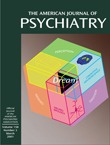Cytokines, Stress, and Depression: Advances in Experimental Medicine and Biology, vol. 461
It has hardly been two decades since the word “cytokine” has been introduced, mostly as a “neutral” term to accommodate the newly found overlap between substances such as lymphocyte-derived soluble factors (lymphokines) and monocyte-derived soluble factors (monokines). The rapid pace of “discovery” of newer cytokines and the broader role they were found to play among immune cells led to a new terminology that assigns an “interleukin” number to cytokines as their genes are sequenced. Little did anybody know at the time that these cytokines had anything to do with the brain or behavior.
It was not until the late 1980s that a flurry of reports indicative of a brain connection started to appear. Cytokines and their receptors are expressed in the brain. They interact closely with neurohormones and neurotransmitters. They stimulate neovascularization and gliosis. In animal models, they affect behaviors such as food intake, temperature regulation, and social exploration. In addition to immunologists and neuroscientists, psychiatrists also got interested. Cytokine theories of schizophrenia, major depression, and Alzheimer’s disease were put forward as clinical applications in the burgeoning field of “psychoneuroimmunology.”
The book Cytokines, Stress, and Depression is devoted to the establishment of a link between cytokines and clinical depression. It is based on the proceedings of a meeting that took place in Roscoff, France, on May 14–17, 1998. The purpose of the meeting, as stated in the preface, was to bring together scientists working in the field to discuss “the converging evidence between the brain effects of cytokines and the immunological correlates of depression.” The editors acknowledge up front some overlap between the contents of the different chapters and affirm that “nothing has been done to reduce or even to hide it.” Indeed, they feel that repetition and redundancy, when it comes from divergent sources, will help make their point.
The evidence for a cytokine connection in depressive illness as presented in this book is at first glance overwhelming: cytokines are associated with vegetative signs of depression such as sleep and appetite disturbances; treatment with cytokines produces depressed mood and altered cognition; cytokine production is affected by stress; cytokines are associated with increased activity of the hypothalamic-pituitary-adrenal axis and dysregulation of neurotransmitter metabolism, including norepinephrine and serotonin; antidepressant treatment affects cytokine secretion; and so on.
Are we ready then to throw away DSM-IV and measure cytokines instead to diagnose depression? Not so fast! The hypothesis, no matter how attractive, remains a hypothesis. The evidence is mostly circumstantial. Direct evidence of cytokine dysregulation in major depression, presented in section 1 of the book, remains slim and suffers from methodological flaws that have not been easy to fix. Unreplicated, even contradictory findings still abound. Treatment protocols have not yet been developed.
The obstacles facing the cytokine hypothesis of depression should not necessarily diminish the scientific value of this book. The editors have done an excellent job in writing the recipe. The different authors have made a commendable effort in preparing the ingredients. Only time will tell whether cytokine assessment will ever be an integral part of the diagnosis and/or treatment of depression. The proof, as they say, is in the pudding.



